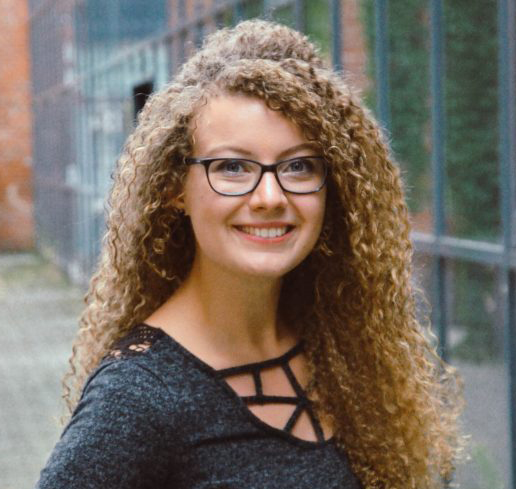This page contains automatically translated content.
"Digital lectures also have advantages"
 Image: AStA
Image: AStAMs. Eltzner, what issues are occupying the AStA these days?
Before the start of the semester, we negotiated with the Hessian transport associations to find accommodating arrangements for students who were unable to validate their Campuscard. The North Hessian transport associations in particular have been very accommodating, which makes us happy. This means that students here can travel within the area of validity of our semester ticket with their Campuscard, which has not yet been validated, and their current certificate of enrollment. We were able to negotiate this temporary solution until June 30. At the start of the semester, we received an increasing number of inquiries from students who were experiencing existential difficulties, for example, because their part-time job had fallen through.
How can the AStA help here?
Together with the Studierendenwerk, we run an emergency fund from whichcan pay out a quick emergency aid of 200 euros to students in need. At the same time, we have made efforts to ensure that students who are employed in AStA facilities such as the Café DesAStA, the bicycle repair shop or the dyeing shop continue to be paid sufficiently. Unfortunately, there has been little support from the federal government so far, apart from general declarations - together with ASten of other universities, we are therefore campaigning for emergency aid of 3,000 euros from the federal government to be paid out to all students. The KfW loans, which are presented as a "solution" by the Federal Minister of Education, do not represent a solution for us. We continue to fight for student financing options, such as parent-independent BAföG, which, unlike the KfW loan, do not mean disproportionate debt for students.
Do you also receive support from the university in this regard?
Yes, for example, we have been provided with more than 60 laptops by the Service Center Teaching that were actually supposed to be sorted out. We are equipping these computers with a new operating system and making them available to students who do not have their own device. Otherwise, it would be practically impossible for these students to participate in the digital summer semester.
The cooperation with the university in implementing concrete Corona measures, such as opening the library to a pick-up service or quickly adapting the General Regulations, is also commendable. These now allow that students who are only missing one postponed exam to graduate do not have to pay another semester fee for it, or that oral exams can now also take place by video conference with mutual agreement. At one point or another, we would like to see more support from the university, for example in the implementation of an optional semester or a free attempt regulation for this semester at the University of Kassel.
What is the response among students to the digital semester?
We have received mixed feedback about it. Many students tell us that they are very happy to be able to follow lectures at their own pace and flexibly adapted to their daily schedule. We are also pleased to note that some teachers have really worked hard to provide a good course under difficult conditions.
At the same time, however, many students have been frustrated - whether because they felt they were not sufficiently informed about the course of the semester, because the start was somewhat chaotic, or because they had technical problems. Quite a few of my fellow students, for example, had to move back in with their parents at short notice, for example because income opportunities were cut off. Often, however, the technical requirements for participating in webinars or other digital courses are not available at home. Especially those students who don't have a fast Internet connection or their own computer are currently at a great disadvantage.
Are there also issues beyond the Corona crisis that the AStA is concerned about?
Of course! For example, we are working on many levels to help shape the university's current profile-building process. Among other things, we have drafted a statement on this and sent it to the presidium. We are also pleased to be able to involve many students who have not yet been active in university politics in this process.
In addition, our event series "Shaping the Future NOW! - From Outrage to Change" on the realization of social-ecological utopias continues, only now in digital form.
In your view, are there also positive developments through Corona?
Yes, the digitalization of teaching in particular was overdue - for example, those who have to work part-time or care for a child at home can now simply watch digital lectures in the time slot that suits them and no longer suffer from scheduling conflicts.
The possibility of holding office hours via video conference and no longer having to travel to the university for this purpose also relieves the burden on both students and lecturers - this is something that should definitely be retained after Corona!